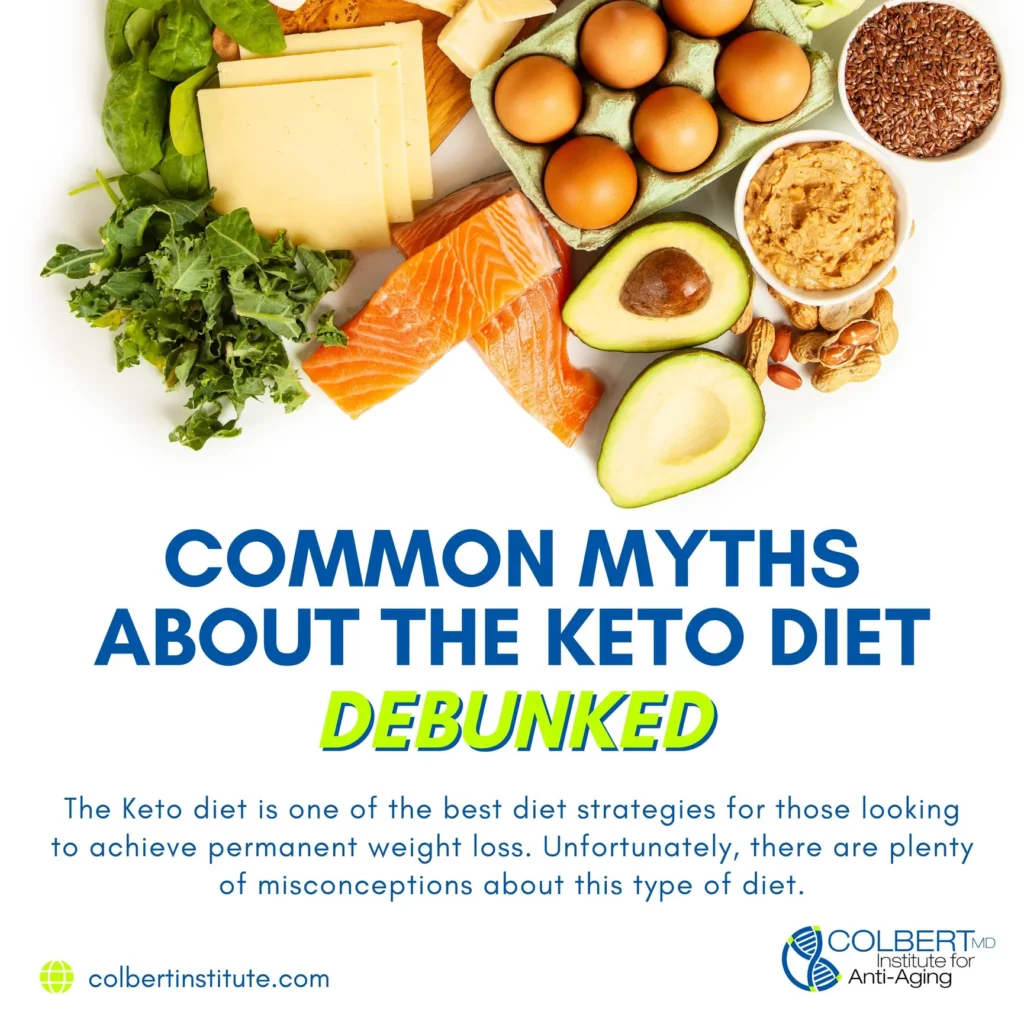The Truth About Keto: Busting Common Myths About the Popular Diet
In recent years, the ketogenic diet, or keto diet, has gained immense popularity among health enthusiasts and individuals looking to lose weight. However, with its rise in popularity, the keto diet has also become subject to numerous myths and misconceptions. In this article, we will delve into the truth about keto and dispel some of the common myths surrounding this popular diet.
What is the keto diet?
The ketogenic diet is a high-fat, low-carbohydrate diet that has been shown to help individuals lose weight and improve their overall health. The primary goal of the keto diet is to put the body into a state of ketosis, where it burns fat for fuel instead of carbohydrates. This is achieved by drastically reducing carbohydrate intake and increasing fat intake.
When the body is in ketosis, it produces ketones, which are a type of fuel that the brain and body can use in the absence of carbohydrates. This process can lead to rapid weight loss, improved energy levels, and better blood sugar control.
Common Myths About the keto diet
Myth 1: The keto diet is Unhealthy
One of the most common myths surrounding the keto diet is that it is unhealthy due to its high-fat content. However, numerous studies have shown that the keto diet can be safe and effective for weight loss and overall health.
In fact, the keto diet has been shown to improve markers of heart health, such as cholesterol levels and blood pressure. Additionally, many individuals report feeling more energized and mentally sharp when following a ketogenic diet.
Myth 2: The keto diet is too Restrictive
Another common misconception about the keto diet is that it is too restrictive and difficult to follow. While it is true that the keto diet requires individuals to limit their carbohydrate intake, there are still plenty of delicious and satisfying foods that can be enjoyed on a ketogenic diet.
Some keto-friendly foods include:
– Avocados
– Nuts and seeds
– Olive oil
– Fatty fish
– Low-carb vegetables like spinach, broccoli, and cauliflower
By focusing on whole, unprocessed foods and getting creative with recipes, individuals can enjoy a wide variety of tasty meals while following a keto diet.
Myth 3: The keto diet is only for weight loss
While the keto diet is often used for weight loss, it can also have numerous other health benefits. Some studies have shown that the keto diet may help improve symptoms of conditions like epilepsy, type 2 diabetes, and polycystic ovary syndrome (PCOS).
Additionally, many individuals report feeling more mentally clear and focused when following a ketogenic diet, which can be beneficial for overall cognitive function.
Myth 4: You Can Eat as Much Fat as You Want on the keto diet
While the keto diet is high in fat, this does not mean that individuals can eat unlimited amounts of fat without consequences. It is still important to practice portion control and choose healthy fats like avocados, nuts, and olive oil.
Eating too much unhealthy fat, such as processed meats and fried foods, can still have negative effects on health and weight loss goals. It is important to focus on quality fats and balance them with protein and low-carb vegetables for optimal results.
Myth 5: The keto diet is not Sustainable
Some individuals believe that the keto diet is not sustainable in the long term due to its restrictive nature. However, many people find that they can easily maintain a keto lifestyle by making small adjustments to their eating habits and finding creative ways to enjoy their favorite foods.
By focusing on nutrient-dense foods and listening to their bodies, individuals can make the keto diet a sustainable and enjoyable way of eating for the long term.
Frequently Asked Questions About the keto diet
Q: How long does it take to get into ketosis on the keto diet?
A: The time it takes to enter ketosis can vary depending on the individual, but most people will enter ketosis within 2-7 days of following a ketogenic diet. To speed up the process, it is important to limit carbohydrate intake to 20-50 grams per day and increase fat intake.
Q: Can I drink alcohol on the keto diet?
A: While alcohol can be consumed in moderation on the keto diet, it is important to choose low-carb options like dry wine, spirits, and light beer. Be mindful of the additional calories in alcohol, as they can hinder weight loss goals.
Q: Will I experience the “keto flu” when starting the keto diet?
A: Some individuals may experience symptoms like headaches, fatigue, and irritability when first starting the keto diet. This is often referred to as the “keto flu” and is a result of the body adjusting to burning fat for fuel instead of carbohydrates. Drinking plenty of water, getting enough electrolytes, and getting adequate rest can help alleviate these symptoms.
Q: Can I exercise on the keto diet?
A: Exercise can be beneficial when following a ketogenic diet, as it can help improve fat burning and overall health. It is important to listen to your body and adjust your exercise routine as needed while on the keto diet.
Q: Is the keto diet safe for everyone?
A: While the keto diet can be safe and effective for many individuals, it may not be suitable for everyone. It is important to consult with a healthcare provider before starting the keto diet, especially if you have underlying health conditions or are pregnant or breastfeeding.
In conclusion, the keto diet is a popular and effective way to lose weight and improve overall health. By dispelling common myths and misconceptions about the keto diet, individuals can make informed decisions about whether the keto diet is right for them. With proper planning and guidance, the keto diet can be a sustainable and enjoyable way of eating for those looking to achieve their health and weight loss goals.

